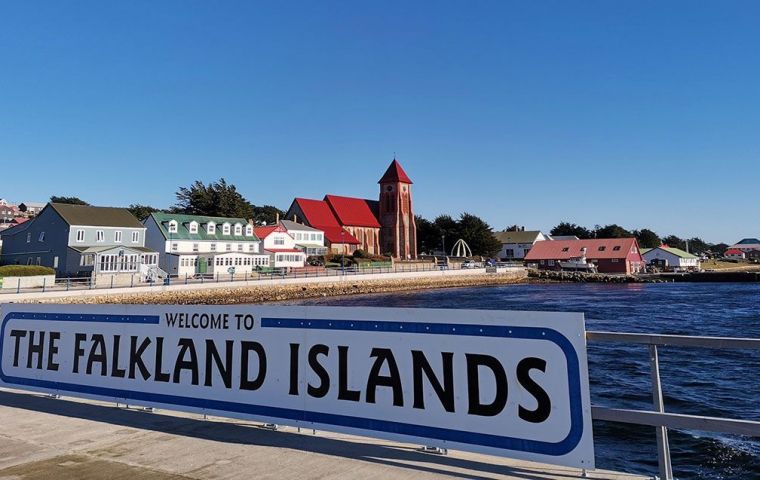MercoPress. South Atlantic News Agency
Falklands: with an inflation index of 6,1%, salaries increase in budget of 3%, trigger long debate
 MLA Roberts had earlier noted that the 3% cost of living award proposed for government employees did not reflect “the real terms increase which we know is 6.1% at September RPI”
MLA Roberts had earlier noted that the 3% cost of living award proposed for government employees did not reflect “the real terms increase which we know is 6.1% at September RPI” It briefly appeared the Falkland Islands Budget process was going to be delayed this year when MLA Leona Roberts supported by MLA Mark Pollard asked for “elements” of the 2023 Budget to be taken back to Budget Select Committee for further public consultation and engagement.
However after advice from the Attorney General, Simon Young, MLA Roberts said she was concerned about pushing budget decisions back to July (the time it would have taken to enable proper public feedback on legislative procedure) and decided to push for “real discussion about how we do this properly” ahead of next year’s budget.
MLA Roberts had earlier noted that the 3% cost of living award (which included a one-off £1,500 payment to the lower paid) proposed for government employees did not reflect “the real terms increase which we know is 6.1% at September RPI”
She said of the one-off payment to low earners in FIG, “this is not a pay increase.”
She said the 3% gap between the award and cost of living would be carried forward in perpetuity and if this was repeated next year people’s real terms income would “fall further and further behind...”
She said although predictions had been for inflation to slow, she had not seen any predictions for deflation in the near future.
MLA Roberts indicated that September’s RPI report - the reference for next year’s budget - was not that far away and it was likely that there would be another substantial increase in cost of living when debating the next budget. As such she predicted yet another below inflation pay increase.
MLA Roger Spink defended the decision saying it was a recommendation on an OECD report from December 2022 on Minimum Wages on times of rising inflation.
He said he had done a couple of calculations himself “and someone on £20,000 a year working for government would be £880 ross better off than someone who had a 6.1% inflationary wage rise in this next year. An individual on £30,000 would be £570 better off in that year than someone on a 6.1% pay rise. But someone on £100,000 in government would be £3,100 worse off than a 6.1% pay rise but they will get a £3,000 pay rise. ”
That is why I thought this was the right way to go. It was looking after those who had less discretionary expenditure, less discretionary money to spend on other things and who need that help and we directed the money that we had to lower income groups.”




Top Comments
Disclaimer & comment rulesCommenting for this story is now closed.
If you have a Facebook account, become a fan and comment on our Facebook Page!